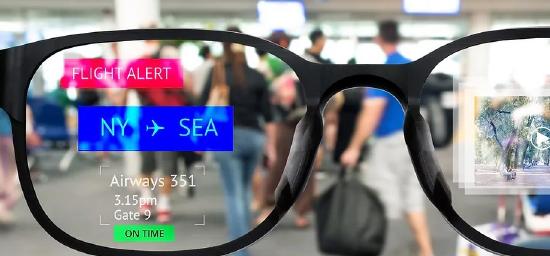Rick Osterloh, google's senior vice president of devices and services, recently announced that Google has formally acquired Raxium, a microled technology-focused startup, another major hardware acquisition after smart glasses maker North in 2020, but neither side has announced the specific size of the transaction.

After Google acquires Raxium, it may use its technology to create a new generation of VR headsets. Osterloh said Raxium will join the Google Devices and Services team, and its technical expertise in this area will play a key role in our continued investment in hardware efforts.
It is understood that Raxium is a Fremont, California-based startup that mainly develops MicroLED displays for AR headsets and other devices. That could be the technical guarantee for Google to build a new generation of AR/VR/MR headsets, while also adding to the evidence that Google's next AR big move is getting closer and closer, after it acquired eyewear maker North in 2020, and the company is said to be hiring engineers to build an augmented reality operating system.
According to Raxium, its MicroLED technology can shorten the pixel pitch of the screen to a limit distance of about 3.5 microns, which will help Google play a key role in hardware work. Raxium said that compared with other display technologies, MicroLED is brighter, smaller, lighter, higher energy consumption, and longer endurance. They are expected to replace OLED in VR/AR headsets or heads-up displays.
As early as March this year, some people familiar with the matter said that Google had reached an acquisition agreement with Raxium, a startup that develops MicroLED displays for AR/MR devices. Industry analysts believe that the acquisition of Raxium is another preparation for Google to launch a new generation of AR devices.
Previously, Google also acquired glasses startup North in 2020, and it is reported that North is recruiting engineers to develop an operating system for AR displays. In January this year, foreign media also revealed that Google's lab is developing a headset with the code name "Project Iris", which is under the same management as the "Project Starline" displayed at the Google I/O 2021 Developer Conference last year, and is expected to be released in 2024.
In fact, people such as Meta and Snap have already made a series of acquisitions and collaborations on the same type of technology. For example, Meta earlier partnered with Plessey, a ULED display vendor that Apple intends to acquire, which will grant Meta an exclusive license to IP. As another example, Rave chief scientist Karl Guttag said earlier that multiple sources confirmed to it that Snap has acquired Composite Photonics, a manufacturer that focuses on microdisplay technologies such as MicroLED for augmented reality.
Google's main competitors in AR are Microsoft, Apple, and Meta, all of which have invested a lot of resources in AR to develop their own devices. Raxium's expertise in display technology will be an important part of Google's future investment in building its own devices.